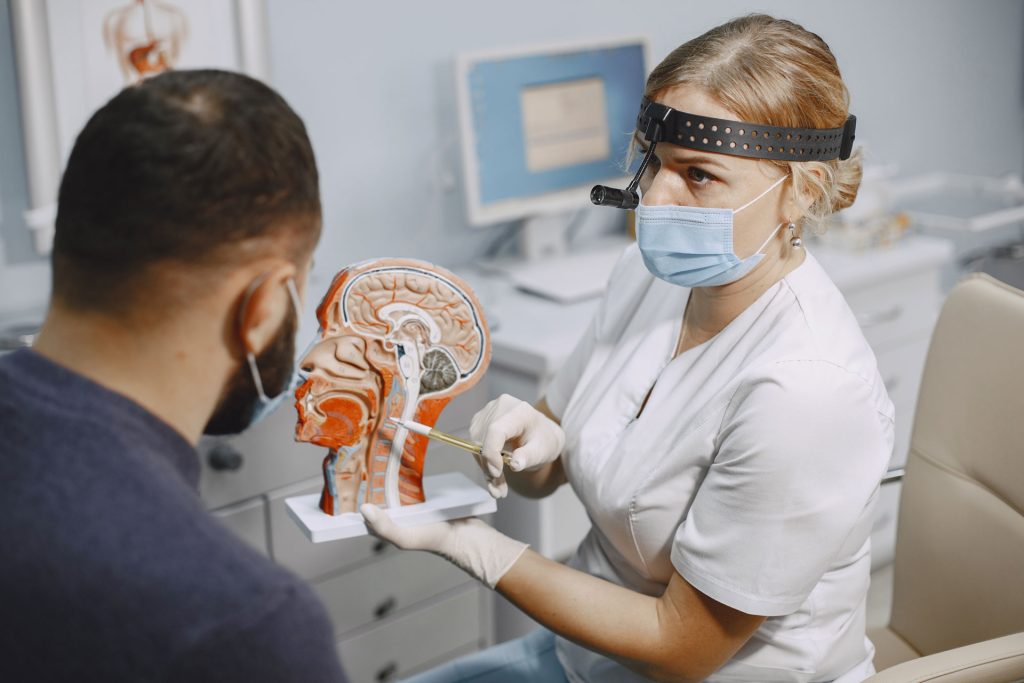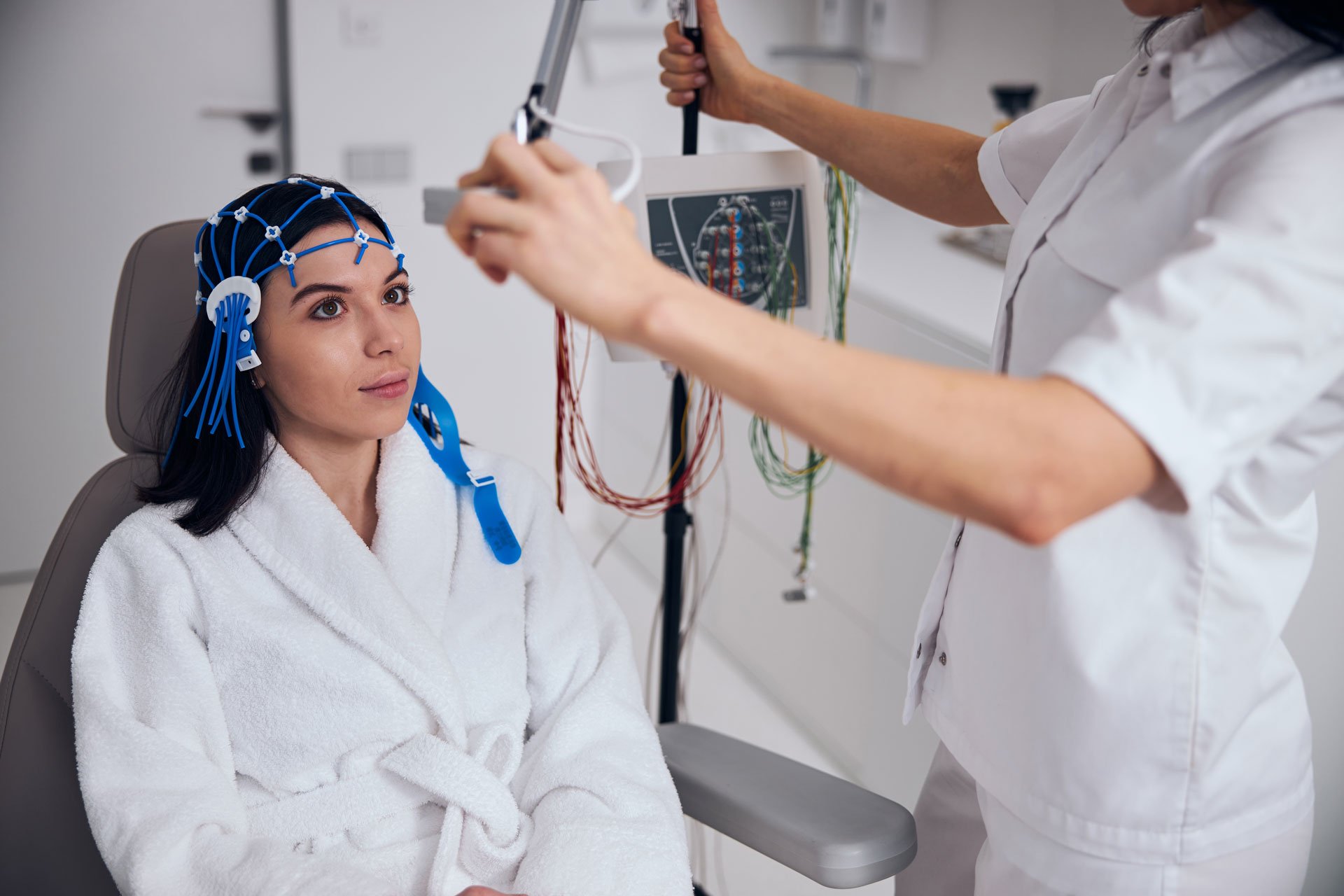Whether you’re visiting a neurologist for the first time or returning for a follow-up, being well-prepared can make a significant difference in the quality and efficiency of your consultation. This guide provides practical tips and a comprehensive checklist designed to help you organize your thoughts, manage your expectations, and ultimately, alleviate any anxiety you may have about your upcoming visit.
By taking these steps, you’ll be better equipped to engage in meaningful discussions with your neurologist, ensuring that you leave with a clearer understanding and a structured plan for managing your neurological health.
Understanding the Role of a Neurologist: What to Expect
When visiting a neurologist, it’s important to understand their role and what to anticipate during your appointment. Neurologists are specialized doctors focused on diagnosing and treating disorders of the brain, spinal cord, and nerves. These can include conditions like epilepsy, Parkinson’s disease, multiple sclerosis, and migraines, among others.
During your visit, the neurologist will take a comprehensive approach to understand your condition. They will first discuss your medical history, including symptoms, family health background, and any medications you’re currently taking. This helps them piece together the context of your neurological health.
The appointment typically includes a physical examination to assess reflexes, muscle strength, sensation, and coordination. Depending on your symptoms, the neurologist might order diagnostic tests such as MRIs or EEGs, which aid in pinpointing specific issues and formulating a diagnosis.
Following the examination and test results, the neurologist will explain your condition in detail, discuss potential treatment options, and answer any questions you may have. This thorough process not only helps in accurate diagnosis but also ensures you receive the necessary guidance and support for managing your condition. Understanding these steps can alleviate anxiety and help you engage more effectively in your care journey.
Related: Parkinson’s Disease: Symptoms, Progression, and Management Techniques
Gathering Your Medical History: Key Information to Bring

Preparing for a neurology appointment can significantly enhance the quality of the consultation and aid in accurate diagnosis. Gathering your medical history is a crucial step in this process. Here are key pieces of information you should bring to your appointment:
- Medical Records: Bring copies of medical records from previous treatments or tests related to your condition. This will help the neurologist understand your medical background and previous diagnoses.
- List of Medications: Prepare a comprehensive list of all medications and supplements you are currently taking. Include dosages and note any side effects you have experienced, as this information is essential for avoiding adverse interactions.
- Symptom Log: Keep a detailed log of your symptoms. Note the frequency, duration, and severity, as well as any potential triggers or alleviating factors. This log can provide valuable insights into your condition.
- Family Medical History: Be ready to discuss any family history of neurological conditions, as some conditions may have a genetic component.
- Questions and Concerns: Write down any questions or concerns you have about your condition or treatment options. This ensures that you address all important points during your consultation.
By being prepared with this information, you can ensure a more productive and informative appointment, ultimately leading to better management of your neurological health.
Related: Understanding Migraines: Symptoms, Triggers, and Treatment Options
Symptom Tracking: How to Document Symptoms Effectively
Effectively documenting your symptoms is a key step in preparing for a neurology appointment. Accurate symptom tracking can significantly aid in diagnosis and treatment planning. Here are some methods and tips to help you track your symptoms effectively:
- Digital Apps: Utilize symptom tracking apps like Flaredown or Symple to log symptoms daily. These apps can provide reminders and visualizations of symptom patterns, helping you and your neurologist understand fluctuations over time.
- Symptom Diary: Maintain a detailed symptom diary, either digitally or using a traditional notebook. Record the onset, duration, frequency, and intensity of each symptom. This can provide a comprehensive view of how your symptoms evolve.
- Specific Details: Include specific details in your entries. Note any potential triggers, activities that exacerbate symptoms, and any relief measures that help. This information can be crucial in identifying patterns or triggers.
- Consistency: Regularly update your diary or app to ensure continuous and detailed records. Consistency is key; the more information you provide, the better your neurologist can assess your condition.
- Preparation for Appointment: Organize your records before your appointment. Highlight significant changes or patterns to discuss with your neurologist, ensuring a focused and productive consultation.
By employing these methods, you can take an active role in managing your neurological health and facilitate a more effective partnership with your healthcare provider.
Related: Effective Strategies for Head Pain Treatment in Lutz, Florida
Questions to Ask Your Neurologist: Making the Most of Your Time

To maximize your neurology appointment, it’s crucial to ask the right questions. This will not only help you gain a deeper understanding of your condition but also ensure that you and your neurologist are aligned on the best path forward. Here’s a list of essential questions to consider:
- Diagnosis Clarification: “Can you explain my diagnosis in detail and how it relates to my symptoms?”
- Treatment Options: “What are the available treatments for my condition, and what are their potential side effects?”
- Prognosis: “What is the expected progression of my condition, and what can I expect in terms of recovery?”
- Lifestyle Modifications: “Are there lifestyle changes or home care routines that I should adopt to improve my condition?”
- Diagnostic Tests: “What tests will I need to undergo, and how will they contribute to my treatment plan?”
- Alternative Therapies: “Are there complementary or alternative therapies that could benefit my overall treatment?”
- Emergency Signs: “What symptoms should prompt me to seek immediate medical attention?”
- Daily Impact: “How will my condition affect my daily activities, and are there any restrictions I should follow?”
By preparing these questions, you can ensure a comprehensive discussion, enabling you to make informed decisions about your neurological health.
Related: Cluster Headaches: Symptoms, Triggers, and Treatment Approaches
Managing Appointment Anxiety: Tips for Staying Calm
Managing anxiety before a neurology appointment can be challenging, but with the right strategies, you can approach your visit with confidence and calm. Here are some practical tips to help manage appointment anxiety:
- Plan Ahead: Schedule your appointment at a time when you typically feel less anxious. Ensure you know the location and how to get there to avoid last-minute stress.
- Prepare Questions: Write down any questions or concerns you have beforehand. Having a list can help you focus during the appointment and ensure you don’t forget to address important issues.
- Practice Relaxation Techniques: Engage in deep breathing exercises, mindfulness, or meditation in the days leading up to your appointment. These practices can help calm your mind and reduce anxiety.
- Bring a Support Person: Having a friend or family member accompany you can provide emotional support and help you feel more at ease during the visit.
- Distract Yourself: Bring a book, music, or a crossword puzzle to keep your mind occupied while waiting for your appointment.
- Avoid Internet Searches: Resist the urge to look up symptoms online, as this can often lead to unnecessary worry and anxiety.
By implementing these strategies, you can create a more positive and manageable experience, enabling you to focus on discussing your health with your neurologist effectively.
Post-Appointment Follow-Up: Actions to Take After Your Visit
After a neurology appointment, taking the right follow-up actions is crucial for effective management of your condition. Here are steps to ensure a smooth post-appointment process:
- Schedule Follow-Up Tests: If your neurologist, Dr. Kavita Kalidas, has recommended any additional tests, make sure to schedule them promptly. This might include imaging or blood tests that provide further insights into your condition.
- Update Your Primary Care Physician: Inform your primary care doctor about the outcomes of your visit with your neurologist in Lutz, Florida. This ensures continuity of care and keeps all your healthcare providers informed.
- Medication Management: Begin any new medications prescribed during your appointment immediately. Keep a log of any side effects and report them to Dr. Kalidas if they occur.
- Monitor Symptoms: Keep track of any changes in your symptoms. Note improvements or any new symptoms that emerge, as these details will be vital for your next consultation.
- Review Lifestyle Recommendations: Implement any lifestyle changes advised during your appointment. This may include dietary adjustments, exercise, or stress management techniques.
- Connect with Support: Explore resources at the Center for Neurology for additional support and information on managing your condition.
By following these steps, you can ensure that you’re actively participating in your healthcare and optimizing your treatment plan.

